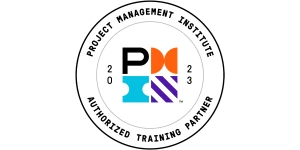Understanding Lean Manufacturing Principles
Lean Manufacturing (earlier known as Toyota Production System or TPS) is a method developed by the Japanese company Toyota, and it is used in eliminating waste (Muda in Japanese) in a manufacturing system. Essentially, this practice aims to add more value to the structure by enhancing efficiency to improve the value of products and customer satisfaction. There are several Lean principles that govern this systematic method, and it is important to understand these principles before implementing the technique.
Eliminate Wastes
The main principle of Lean Manufacturing practices is to eliminate wastes. In the manufacturing environment, there are many wastes produced due to overproduction, unnecessary motion, inventory, defects, waiting, over-processing, and transportation. These types of wastes can also be applied to different types of businesses.
In the process of eliminating waste, Lean Manufacturing principles enables one to look into the diverse areas within the organization and determine the non-value added work so that it can be reduced or eliminated. The major process involved in this step is called value stream mapping, which creates a visual guide of all components that are necessary to deliver a product/service, with the goal of improving and optimizing in the mind.
Continuous Improvement
Termed as Kaizen in Japanese, continuous improvement is the most important of all principles in Lean. Without it, the organization will not be able to experience progress at all. The thing is that continuous improvement always promotes changes needed in order to achieve the desired situation or state. It does not matter if you seek small or big improvement, what matters is that you constantly seek it and that will bring success.
Respect For The Humanity
Business is for the people, thus the next principle of Lean Manufacturing has something to do with the welfare of the people. In fact, the most important resource of any company is its manpower. Without their support and work, the company will not succeed. It is important for a business to make their employees feel respected and valued. The more motivated they feel, the harder they will work, proving key Lean Manufacturing systems to be highly effective in any organization. To make people feel respected, companies should constantly communicate with them and listen to their ideas.
Learn More About Lean Training
Leveled Production
Leveled production is an important foundation in Lean Manufacturing. It emphasizes that the workload should be the same every single day. The thing is that many companies are at the mercy of their clients, and their production depends on the orders of their clients. So once a company gets a large volume order, it often results in excess production effort and even products that may not be needed by the clients at all. Leveled production is a key ingredient in reducing the amount of waste due to overproduction.
Quality Built-In
To reduce wastes, Lean indicates that the quality should be built-in to the manufacturing process. This means from the design phase down to the packaging, quality should exist all throughout. Automation, while still using human touch, is a great example of this Lean principle.
Just In Time Production
The just in time principle indicates that companies should only make what is required when it is required while considering the quality of the product. With this principle, the components used in creating a product are used timely and appropriately so the waste produced is minimal.
So why wait, register today for your Six Sigma Training. We look forward to seeing you in our upcoming session near you!
SixSigma.us offers both Live Virtual classes as well as Online Self-Paced training. Most option includes access to the same great Master Black Belt instructors that teach our World Class in-person sessions. Sign-up today!
Virtual Classroom Training Programs Self-Paced Online Training Programs






